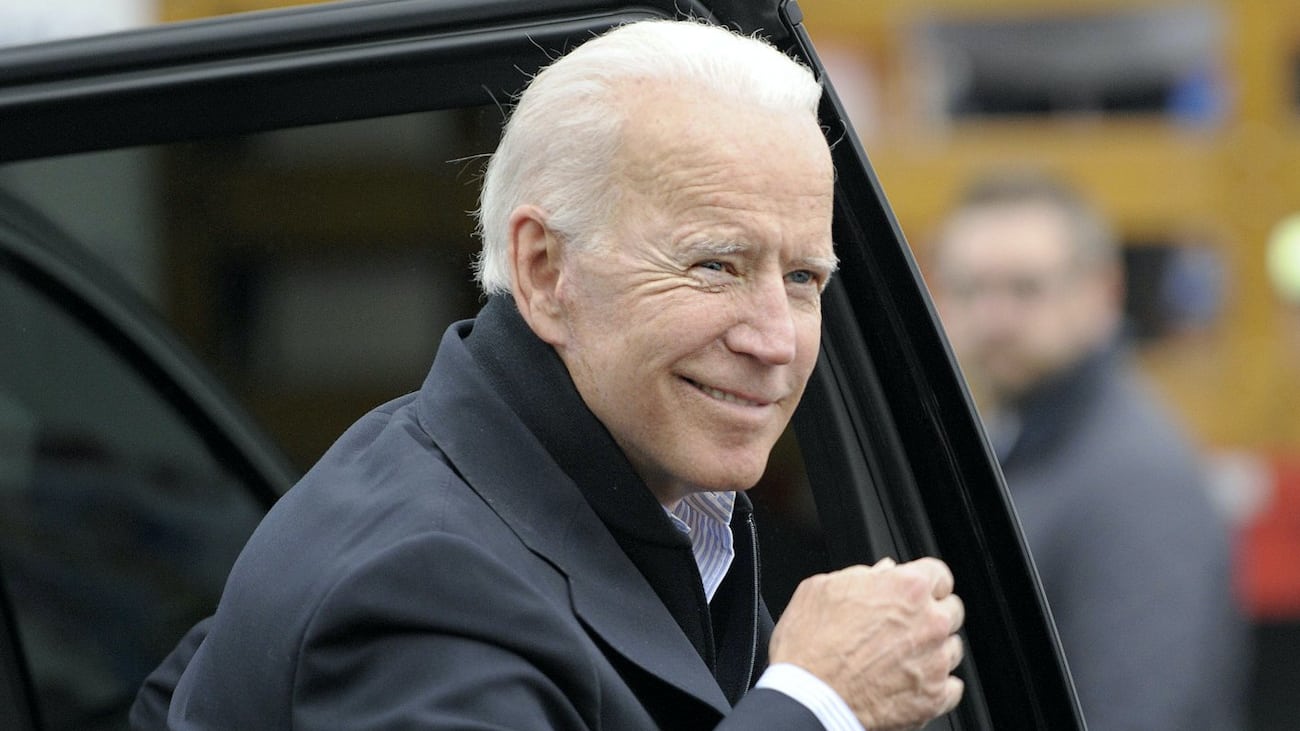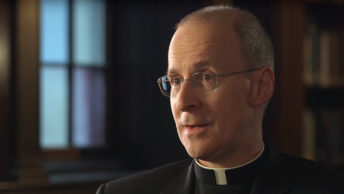In the midst of his campaign for the Democrat presidential nomination, former Vice-President Joe Biden was denied Holy Communion by Father Robert Morey in Florence, South Carolina. Public reaction was mixed. Some people were outraged that a man long described in the media as a “devout Catholic” would be treated in such a manner by a priest of his own Church. Others were relieved that, at long last, at least one priest had the courage to take the action required by Catholic teaching and his Bishop’s guidelines.
For the record, although Father Morey’s action is not very common, it is not without precedent. In 2004 St. Louis Archbishop Raymond Burke took a similar position concerning Sen. John Kerry. And in 2008, Scranton Bishop Joseph Francis Martino did so with Joe Biden. Not surprisingly, many liberals were outraged in those cases and other similar ones.
Why the outrage over the Catholic Church’s denial of Communion to political candidates who support abortion? Mainly because two false ideas have become embedded in contemporary culture and influenced many people.
The first false idea is that the Catholic view on abortion, a view shared by many other denominations and religions, is unreasonable if not absurd. Here is why this idea is false:
The Catholic Church teaches that abortion is murder. So what exactly is murder? The dictionary defines it as “the killing of another person without justification or excuse, especially the crime of killing a person with malice aforethought or with recklessness manifesting extreme indifference to the value of human life.” Let’s test the Catholic view by that measure.
Is a human fetus a human being? Yes. Science has made clear that a human genetic code is present from the moment of conception.
Is a human fetus a person? Some say no, but the dictionary notes that the terms “human being” and “person” are interchangeable. It therefore tortures logic to argue that a fetus is human but not a person.
Can the destruction of a person in the womb be justified? In the case of a genuine grave danger to the life of the mother—as in a fallopian pregnancy for which there is no other solution—the only reasonable answer is yes. (The Catholic Church affirms this qualification.) But such a danger is not present in the vast majority of cases, so in those cases the answer is no. The Catholic view on abortion is therefore perfectly reasonable.
The other false idea is that when elected officials are guided by their religious beliefs, they are “imposing their beliefs” on their constituents.
Joe Biden embraced this idea and offered the following explanation for his position in a debate on October 11, 2012: “I accept my church’s position on abortion as a, what we call de fide doctrine. Life begins at conception. That’s the church’s judgment. I accept it in my personal life. But I refuse to impose it on equally devout Christians and Muslims and Jews, and I just refuse to impose that on others . . . I do not believe that we have a right to tell other people that women can’t control their body. It’s a decision between them and their doctor, in my view.” [Emphasis added]
That explanation—that he will personally accept the Church’s view, but will not impose it on others—seems eminently reasonable to many people, but that is only because they read the word “impose,” immediately think “that is unfair, even un-American,” and then stop thinking. They should instead ask these important questions:
- “Is the acceptance of the Church’s teaching on an issue necessarily a matter of blind faith? Is it not possible to accept the Church’s teaching, wholly or in significant part, because in light of the evidence it is more reasonable than other views?”
- “Isn’t making one’s political actions consistent with one’s personal, reasoned beliefs a principled action rather than a form of imposition?”
Although the sensible answer to both questions is yes, Biden does not seem to grasp that fact. As a result, he slips in and out of agreement with the Church. In the 1990s he voted to outlaw gay marriage, a view consistent with that of the Catholic Church. However, in 2012, when he was Vice-President, he supported gay marriage, in opposition to the Church’s view. Similarly, in the 1970s and 1980s, he opposed the use of federal funds for abortions, as the Church did (and still does); then in 2019, he reversed his position. He also supported (as the Church did) a constitutional amendment allowing states to overturn Roe v Wade, but then more recently has taken the opposite view.
How should we interpret these flip-flops in Biden’s views, sometimes supporting the Church’s position and other times opposing it? We could take them as evidence that his support has nothing to do with his beliefs or principles and everything to do with political expediency. But there is a more charitable interpretation—that he has come to believe the Catholic Church is wrong on certain matters, so he can no longer accept their teaching on those matters. However, if that is the case, why doesn’t he say so instead of claiming that something can be true scientifically and theologically but untrue politically? That, after all, is what he implied when he said that life begins at conception for Catholic laymen but not Catholic legislators. Where did he get such a notion?
Before answering that question, let me answer the one that began this essay. Was Father Robert Morey’s decision to deny Joe Biden the Eucharist defensible? Yes, and more than that, it was laudable. As Bruce T. Morrill, Vanderbilt professor of Catholic Studies, has noted, “In 2004 the office of the Vatican that regulates teaching on faith and morals specified that a politician’s ‘consistently campaigning and voting for permissive abortion and euthanasia laws’ constitutes ‘personal formal cooperation’ in grave sin.” Biden’s behavior fits that description exactly.
Let’s now consider why Biden believes that elected officials should put aside their personal convictions on issues such as abortion and that not doing so is equivalent to imposing their beliefs on others. He certainly did not create this belief, nor did the many other Catholic politicians who have embraced it. So where did he and the others get it?
The answer to this question is both shocking and ironic. Politicians got that idea from the Church itself. The idea was advanced by a leading American prelate half a century ago and has never been effectively challenged by the Catholic hierarchy. Part 2 of this essay will explain in detail how this happened and how it has impacted the lives of American Catholics.
Copyright © 2019 by Vincent Ryan Ruggiero. All rights reserved








